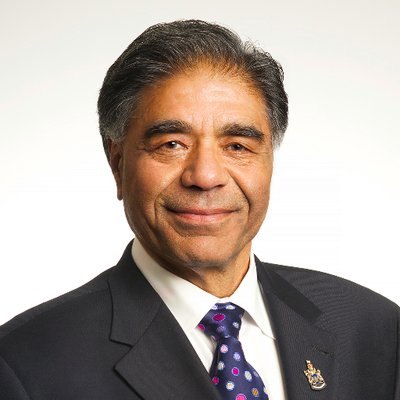Saturday, July 5, 2025
Residents and businesses in Vancouver’s River District community will soon have their space and water heating needs met with energy generated by Metro Vancouver’s Waste-to-Energy Facility. A new agreement with Metro Vancouver will see River District Energy purchase up to 10 megawatts of heat from the Waste-to-Energy Facility starting in 2025, reducing greenhouse gas emissions by allowing the community to use less natural gas.
“Metro Vancouver is committed to being part of the solution in the fight against climate change, and we are thrilled to partner with River District Energy providing cost effective energy in the pursuit of lower emissions and energy efficient communities,” said Sav Dhaliwal, chair of Metro Vancouver’s Board of Directors.

Sav Dhaliwal, chair of Metro Vancouver’s Board of Directors. Credit: Twitter @BurnabySav.
River District will be the first development to benefit from waste-to-energy heat recovery at Metro Vancouver’s facility, allowing it to meet the City of Vancouver’s Zero Emission Building policies. When fully built out, the district energy system will provide heat and hot water for 18,000 residents and more than 500,000 square feet of office and commercial space, reducing greenhouse gas emissions by up to 90 per cent — the same as taking all of the cars in River District off the road.
“River District Energy has for a decade been supplying affordable, reliable space heat and hot water to the residents of River District. This deal marks the next step in the service we provide to our customers. Almost eliminating our use of natural gas allows the residents and customers we serve to play their part in tackling climate change, while still receiving safe, reliable and affordable heat,” said Malcolm Shield, VP of sustainability for Wesgroup Properties.
Metro Vancouver’s Waste-to-Energy Facility, located in Burnaby, handles about a quarter of the region’s garbage and generates approximately 22 megawatts of electricity — enough to power nearly 16,000 homes — which it sells to BC Hydro.
“The City of Burnaby is excited to see this project advance and we look forward to capitalizing on this new infrastructure to expand district energy into Burnaby neighbourhoods in the near future,” said Metro Vancouver Director and Burnaby Mayor Mike Hurley. “These are the kinds of innovative solutions we need as we forge a path to a carbon-neutral future.”
In addition to producing electricity, steam from the facility can also be used to heat water for district energy applications, with the potential to save up to 45,000 tonnes of greenhouse gas emissions per year. A district energy system works by using underground pipes to deliver hot water to nearby homes and businesses. Supplying heat through district energy in addition to generating electricity triples the amount of energy that can be recovered from the waste-to-energy process.
“Metro Vancouver is committed to becoming a carbon neutral region by 2050. Optimizing the use of energy from the Waste-to-Energy Facility will allow us to reduce our carbon footprint while providing a sustainable heat source for homes and businesses,” said Jack Froese, chair of Metro Vancouver’s Zero Waste Committee. “The greenhouse gas reduction resulting from the Waste-to-Energy Facility district energy system will contribute tremendously to helping us achieve our environmental targets.”

The 2021 approved changes to Area 1 and Area 3 of River District (East Fraser Lands). Image Credit: City of Vancouver.
Detailed project design will begin in early 2022. The first phase of Metro Vancouver construction will involve building an energy centre next to the Waste-to-Energy Facility and a pipe system that will deliver hot water to River District. Construction of a Community Energy Centre in River District to receive heat from Metro Vancouver and distribute it to the community will begin in 2023.
The estimated cost of Metro Vancouver’s first phase of the district energy system is $55 million. Infrastructure such as an energy centre and pipe networks constructed as part of the first phase of the system will be sized to accommodate future system expansion. The capital and operating costs for the system will be fully funded over the life of the project through energy sales.
Featured images and video from Metro Vancouver.











